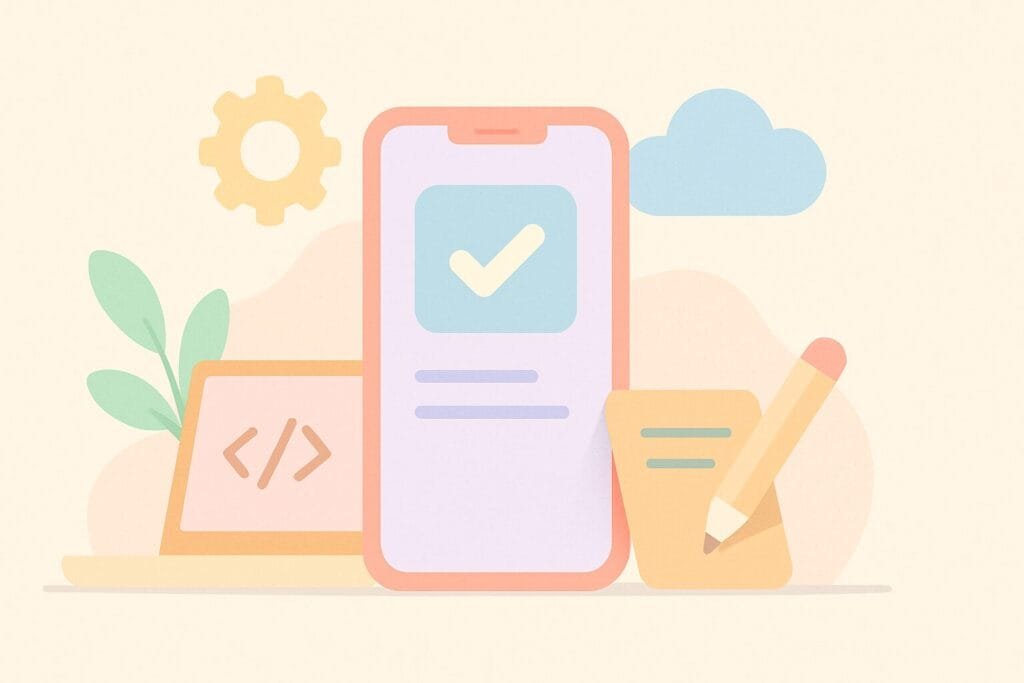Becoming a freelance mobile developer can be an exciting and profitable career choice for those who enjoy building mobile apps and working independently. Whether you’re interested in Android, iOS, or cross-platform development, freelancing allows you to take control of your time, income, and career growth. In this guide, we’ll walk you through the essential steps to becoming a successful freelance mobile app developer.

1. Build Strong Mobile Development Skills
Before diving into freelancing, you must be skilled in at least one mobile development platform. Choose a path that aligns with your interests or market demand:
- Android Development (Java/Kotlin)
- iOS Development (Swift/Objective-C)
- Cross-Platform (Flutter/Dart, React Native/JavaScript)
Learning platforms like freeCodeCamp offer tutorials to get you started.
2. Create a Solid Portfolio
Clients want proof that you can deliver. Build a portfolio website showcasing:
- 3–5 real or demo mobile apps
- Screenshots and links to GitHub repositories or app stores
- Descriptions of features and tools used
If you’re just starting, create apps based on popular app templates or clone apps with added features to demonstrate your skills.
3. Set Up Freelance Profiles
Join popular freelancing platforms to find your first clients:
- Upwork
- Fiverr
- Toptal
- Freelancer
- PeoplePerHour
Optimize your profile with a professional photo, a strong title (e.g., Mobile App Developer with 5+ Years Experience), and a compelling bio. List your skills, rates, and relevant work.
4. Learn Client Communication and Project Management
Success in freelancing is not only about coding — you need soft skills:
- Communicate clearly and frequently
- Use tools like Trello, Asana, or Notion for project management
- Provide timelines, updates, and reports professionally
Being reliable and communicative often leads to repeat business and referrals.
5. Master Pricing and Negotiation
When starting, your pricing may be lower. But once you build a reputation, you can increase your rates. Common pricing models include:
- Hourly rate (e.g., $15–$50/hour depending on your location and experience)
- Fixed-price per project
- Retainer agreements
Always define the project scope clearly in a contract to avoid misunderstandings.
6. Keep Learning and Updating Your Skills
Mobile development evolves fast. Stay updated with:
- New frameworks and libraries
- App store guidelines
- Mobile UX/UI trends
- Security and performance best practices
Subscribe to developer newsletters, follow GitHub projects, and take online courses regularly.
7. Market Yourself Consistently
Promote your services using:
- LinkedIn profile and posts
- GitHub projects
- YouTube or blog tutorials
- Instagram or Twitter showcasing your UI designs or app walkthroughs
Build an audience and credibility to get organic leads beyond freelancing platforms.
8. Legal and Financial Setup
Finally, consider the business side:
- Register a business or operate as a sole proprietor
- Use accounting software (like Wave or QuickBooks)
- Set aside taxes and keep financial records
Use digital contracts and payment systems like PayPal, Wise, or Payoneer for global clients.
Becoming a freelance mobile developer requires dedication, skill, and consistency. With the right strategy, you can build a career that’s flexible, scalable, and personally fulfilling.

